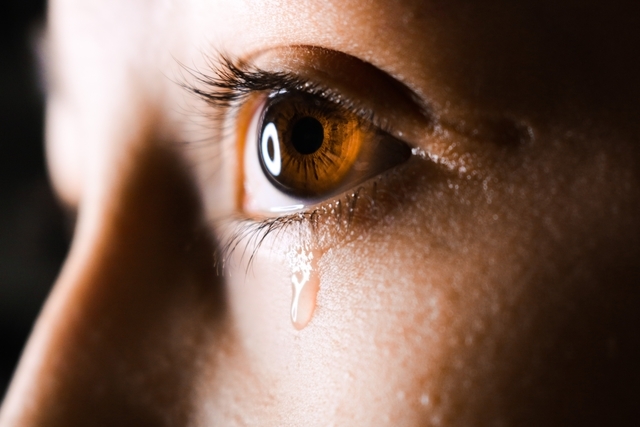Understanding grief can be complicated, but at a fundamental level, it’s a natural reaction to losing someone or something close to your heart or something you valued. Grief can arise from losing a loved one, a relationship breakdown, a pet’s passing, unexpected redundancy, getting sick, or other life changes.
It’s associated with feelings ranging from sadness and loneliness to disbelief and anger. Grief comes in stages, and it can be overwhelming to the extent you have doubts about your ability to deal with it.
No matter how devastating your loss, you can move through your grief and heal, as long as you take care of yourself and give yourself time.
Given this, these vital insights and strategies on the grieving process could support you in getting started on the road to healing.
Knowing The Different Types Of Grievance
From significant losses like the passing of a beloved family member, to subtle losses like moving away from home, or a financial emergency, causes of grief can vary.
Keep in mind your grief and your grieving process is personal to you and your feelings are legitimate, so don’t feel ashamed or even guilty for feeling grief at a minor situation.
You could find yourself moving through the five stages of grief: denial, anger, bargaining, depression, and acceptance.
You could experience different types of grief, including “normal grief,” which is characterized by gradual acceptance and alleviation of symptoms.
Other types of grief include anticipatory grief, which is the grief that precedes the actual loss; complicated grief, which tends to be long-lasting and debilitating; and delayed grief, which is grief that hits you long after the loss.
You could experience distorted grief, which is an intense, extreme reaction to the loss; prolonged grief, which is a prolonged and intense reaction to loss; and traumatic grief, which tends to involve extreme distress.
The Effects On Your Body
Grief can have an impact on your physical health; for example, making it challenging to get adequate sleep or even eat.
You could experience symptoms like fatigue, nausea, weight loss or gain, chest pain, shortness of breath, dry mouth, headaches, dizziness, sun sensitivity, aches, and pains, and lowered immunity.
It can increase your blood pressure, raise the risk of blood clots, and alter the heart muscle. You could experience digestive issues, noise sensitivity, worsened allergy symptoms, shaking and trembling, and even impaired ability in everyday activities like driving.
It’s usually best to lean into your grief rather than avoiding it. Avoidance of grief or rumination – shifting attention away from the painful truth to focus on negative things that are less threatening – is related to depression and could block healing.
In turn, this can lead to negative physical outcomes like fatigue, poor immune function, and inflammation.
You could minimize the risk of physical conditions by eating properly, staying hydrated, exercising, maintaining a good sleep schedule, and spending time in nature.
Get plenty of rest, talk to loved ones, get the support of your friends, and consult a professional if necessary. Good self-care, self-acceptance, and social support can be vital for healthy adaption and healing after a period of grief.
Things To Avoid While Grieving
Everyone has their own way of grieving, but you could find yourself engaging in unhealthy things when looking for a way to deal with your grief. Some of the things to avoid include the following.
- Staying constantly busy: Don’t stay busy for the sake of staying distracted and never take time-out. Treat yourself to a bath, a relaxing hour or two of reading, or a catch-up with a friend, instead of throwing yourself into work and household chores without breaks or self-care or to distract yourself to avoid feeling the loss.
- Alcohol or drugs: Avoid using temporary fixes like alcohol and drugs to numb the pain, as this could make it more challenging for you to process the loss and proceed towards healing. Try to deal with your emotions head-on, and get support from loved ones to stay mentally positive.
- Major decisions: Grief could affect your good judgment. Delaying major decisions for a few months or more could help you avoid committing to something you’ll later regret.
- Not eating and sleeping: Intense grief can make you lose your appetite and lead to insomnia, but try to get enough sleep and eat regular meals. Stay healthy, and you’ll be better able to deal with your grief.
- Avoiding the world: Alone time is important, but don’t shut yourself off from the world. Join a support group and talk to friends and loved ones.
- Being hard on yourself: If you’re not 100% back to your usual work and life routine, don’t be too hard on yourself. Give yourself time to heal if you’ve lost a loved one, and try to take a celebratory theme by remembering the good times you had with your loved one.
- Clinical depression: Grief should gradually lessen over time, but if you’re drowning in a sense of hopelessness or finding it hard to carry on with daily life, you could be experiencing clinical depression. If so, seek professional counselling as soon as possible.
Processing Your Grief Takes Time
Loss is an inevitable part of life and grief is a natural, normal response to any type of loss, including the death of a loved one.
People who are grieving can grieve in different ways depending on their personality, coping style, life experience, the nature of the loss, and other factors, and it’s common for people to experience physical symptoms.
No two people will grieve in the exact same way, and it can take a bit of time to understand your feelings.
However, if you give yourself enough time to work through your emotions, give yourself the right self-care, and seek the right support, you can heal even from the most devastating loss.






